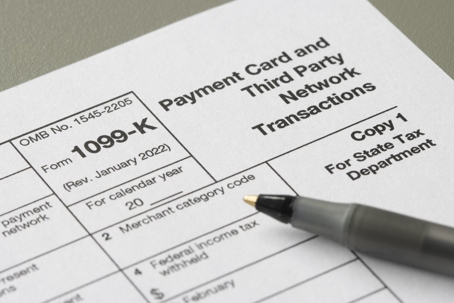Form 1099-K is an information return form that records payments received via third-party channels. Specifically, it records payments received via credit cards, online money transfer platforms such as PayPal, and freelancing platforms that hold their employees' wages, such as Uber. California requires every business making more than $20,000 and overseeing at least 200 transactions to file Form 1099-K. The California Department of Tax and Fee Administration (CDTFA) can use the information in your 1099-K return to determine whether or not to audit your business. Here is a comprehensive overview of how the California 1099-K sales tax works.
California's Tax Audit Process
The CDTFA initiates the sales tax audit process by sending you an audit engagement letter. The letter contains three important details:
- The audit's terms and conditions.
- The documents and information the government requires from you for the audit process.
- A deadline on when to respond to the auditor.
Usually, the auditor will request financial information going back at least three years and sets a 30-day deadline for responding to their request. However, it is worth noting that the audit's terms are slightly negotiable.
It is important to comply with the auditor's requests to avoid serious legal repercussions. It is also prudent to consult a tax attorney before discussing the tax audit plan or signing any documents.
How California Uses 1099-K Sales Tax Audits
The CDTFA conducts sales tax audits for various reasons, including:
- Motivating businesses to comply with the state's tax laws.
- Discovering fraud or oversight.
- Recovering unpaid taxes and increasing the state's revenues.
- Pursuing charges and applying penalties for tax crimes.
The CDTFA will audit your business's tax sales if you break tax laws or do anything to raise their suspicion. The audit process accounts for many factors, including discounts and tips. Overall, however, the auditor will raise an issue if the business's total sales figure is less than the sales figure reported in the 1099-K. They will also use the 1099-K sales figure as the taxable sales. However, you don't have to worry about anything if the final sales figure is higher because of a reasonable amount of cash sales.
Interestingly, many businesses are usually confident that the sales tax audits will come clean. However, this isn't always the case, so it is prudent to prepare properly immediately after getting the audit engagement letter.
Tips to Avoid a 1099-K Tax Audit
California is very strict about enforcing its tax collection laws. However, businesses can still avoid tax audits by doing the following:
- Compare your California Sales and Use Tax Return against the federal 1099-K return and resolve any inconsistencies that may raise suspicion with the state tax auditors.
- Account for all non-taxable sales, including tips and discounts. Unsolicited tips are not taxable in California, but compulsory ones are. It is also worth noting that discounts are only taxable for the discounted amount (not the product's usual price).
- Consider a voluntary disclosure if you notice any discrepancies in your 1099-K tax returns. The voluntary disclosure will eliminate all penalties and make the CDTFA more lenient to your case.
However, it is advisable to mount a good defense if you cannot prevent a sales tax audit. A good defense entails organizing your paperwork, familiarizing yourself with the audit process, and consulting a tax attorney.
Learn More About California 1099-K Sales Tax Audits
You may not have done anything wrong to worry about what a sales tax auditor will uncover, but it is still prudent to prepare properly before the audit starts. Sales Tax Helper can help. Our tax consultants and attorneys know California's tax laws well, and we can help you prepare or mount a fool-proof defense. Get in touch today to learn more about how we can help.

